The Inevitable Interplay between Global Health, Politics and Profit Margins with Dr Jeremy Lim
I speak with the CEO of Southeast Asia's precision gut microbiome company on the need for a systems level approach in solving healthcare's biggest problems.

This article is part of the Public Health People series where I meet with different public health professionals from all around the globe. Join me in exploring the greatest insights from their fields, their passion projects and their principles for both work and life.
Doctor. Writer. Activist. Professor. Businessman.
Dr Jeremy Lim has one of healthcare's most intriguing stories.
He is the co-founder and CEO of AMiLi, Southeast Asia's first dedicated precision gut microbiome company. He is also an Associate Professor and Director of Leadership Institute for Global Health Transformation (LIGHT) at the Saw Swee Hock School of Public Health. Jeremy also serves on the boards of Dover Park Hospice, HealthServe, and Special Needs Trust Company (SNTC). He is an inaugural Equity Initiative Fellow for Southeast Asia and China and speaks regularly on health-related issues both locally and internationally. And if this list is not formidable enough, he is the author of the book Myth or Magic: The Singapore Healthcare System, has spent years serving in both the public and private sectors, and is involved in advising several health tech companies across the globe.
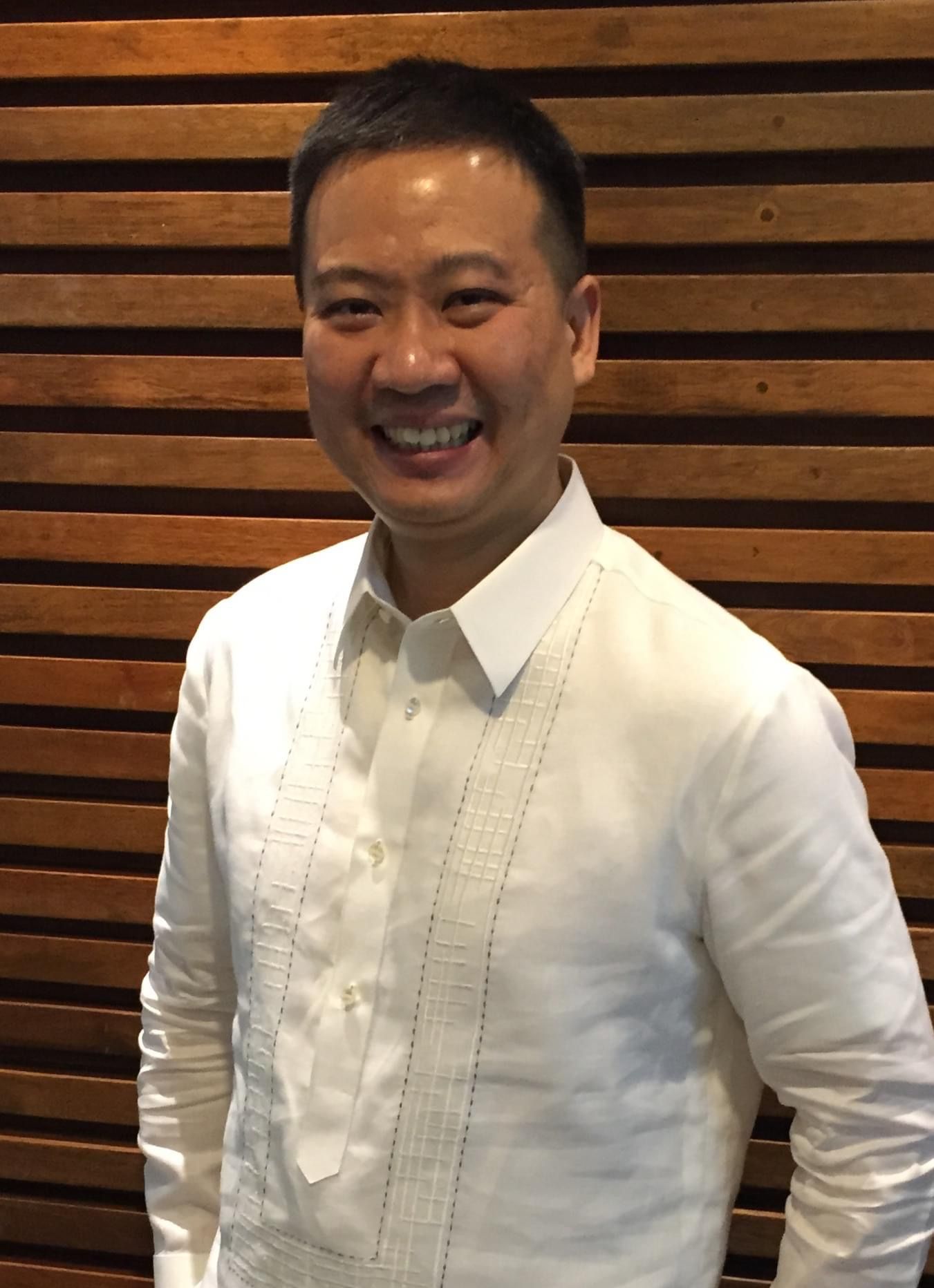
Not only does he believe that healthcare is incredibly complex, but he also relished in all its complexity by immersing himself in all facets of the system: the public, the private, its political domains and in the global arena. Why? He is not looking to treat just its symptoms. He wants to cure healthcare’s biggest problems at their roots.
However, my conversation with Jeremy was unlike any other. At the start of our chat, I found myself tilting my head in puzzlement. So inexplicable is this man's character. All his accomplishments point towards confidence. My initial impression of him was everything but. With his shoulders hunched, and a perpetual need to fiddle with his fingers in an almost nervous gesture, he seemed to shrink into himself. Occasionally, his hands would play absentmindedly with his collar, or shift down to turn his coffee cup between his fingers. At moments, he spoke so quietly that in the din of the cafe, I feared whether my phone's audio recorder would be able to pick him up.
But as we spoke, Jeremy’s self-assuredness became evident-- not in his body language, but in the sharp edge of his words. He was eloquent, charismatic and witty, his words judiciously selected and subconsciously pruned from years of writing and speaking.
Indeed, Jeremy possesses an uncommon, paradoxical bend of character in the public health scene. One that is able to hold the nurturing, graceful patience of an educator with the steadfast, pragmatic edge of a businessman. Nothing reveals this more than his winding journey through public health. That will form Part 1 of this article. Part 2 of this article then consolidates Jeremy's biggest takeaways from his years in the field. His words, although delivered lightly and interjected with playful banter, were laced with steely determination. There was an undercurrent of urgency throughout our conversation, not because he was short for time, but because these were lessons that he felt the world needed to hear.
And consistent with many of the subjects featured in the Public Health People series, Jeremy describes his career moves as part of a "series of happy accidents." Grab a cup of coffee, and let’s dive right in.
Moving From Medicine To Health Systems
"Of all forms of inequality, injustice in healthcare is the most shocking and inhumane." - Martin Luther King Jr. quoted in Jeremy's book: Myth or Magic: The Singapore Healthcare System
Jeremy's appetite to learn, coupled with his perpetual quest towards mastery is symbiotic with his lifelong goal to undo deep-seated inequality in global access to care. He wants to ultimately enable anyone, regardless of where they are in the world, to have access to affordable and quality healthcare.
"When I was in medical school, and throughout the early years of specialist training as a surgeon," Jeremy says, "I was volunteering for medical missions in countries such as Indonesia and Cambodia within the region." He had been on track to become a surgeon. But during his time abroad, he grappled with difficult issues of balancing having the good intentions of helping others and not doing more harm than good. "It was a privilege and a responsibility to be providing humanitarian assistance.” When serving in communities with social and political contexts vastly different from home, “The last thing you want to do is go down to communities in need and mess things up."
There was still much to learn. In 2002, Jeremy's interest in global health eventually led him to pursue a Masters in Public Health at Johns Hopkins Bloomberg School of Public Health.
The year he spent pursuing his MPH was a "bloody busy year." He was also undergoing specialist training as a surgeon and serving as president of the school's International Health Society. "I had the opportunity to straddle two worlds: the world of surgery and the world of public health," a challenge he initially welcomed. If you're a student, you might be familiar with the art of timetabling to manage your classes and workloads. Jeremy took it to a slight extreme. He had strategically grouped his in-person and online classes to just Monday's and Tuesday's, freeing up larger blocks of time for everything else.
What happens when you juggle multiple fiercely demanding commitments all at once? "That year," Jeremy chuckles, shaking his head, "was a total disaster." During the early stages of your career, "achieving a professional level of mastery requires an almost fanatical devotion. He inclines his head, "I can't decide to be a surgeon until five o'clock and then go off to run a committee elsewhere." Eventually, he had to make a choice. "I knew that I was just being bad at both. It didn't make sense to be mediocre in both areas."
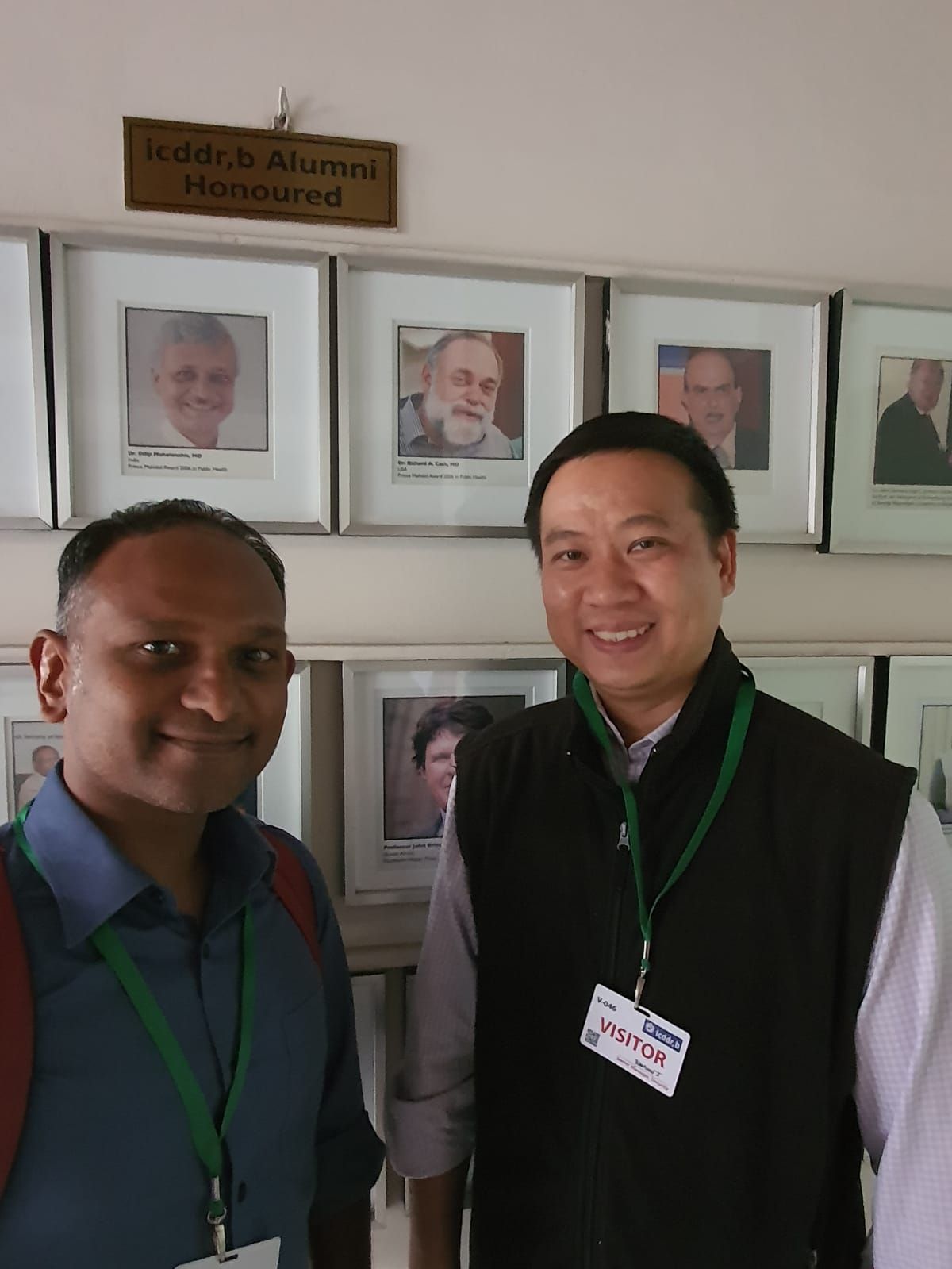
So, Jeremy asked himself two questions. Between surgery and public health, which option meant a faster road to creating impact on a large scale? And where would his skills and interests be more readily needed? "Surgery was and is still incredibly popular. There is no shortage of people far more talented to take my place," he says. On the other hand, "There were so few doctors who were interested in health as a system and wanted to make a difference." His then boss advised him to focus on becoming a really good surgeon. And that in 25 years, he could think about making changes. Jeremy raised his brows. "I don't really want to wait 25 years." There were too many broken things that needed mending, immediately. And it was with this conviction that marked the beginning of his transition out of clinical medicine into what he called, "the policy and management side of the house."
Step by step, he was building a repertoire of tools to cure, rather than treat systemic problems in healthcare. He spent a little more than five years at SingHealth, the largest of Singapore's three healthcare groups today. There, he oversaw research and education programmes, which included developing the group's strategy in basic health services research and driving programmes in healthcare management and leadership to enhance human capital.
Next up was policy work. Jeremy spent some time as a senior consultant at the Singapore Ministry of Health. There, he was focused on the planning of clinical services using 'Integrated Care Pathways' for major diseases such as stroke, COPD and hip fractures as part of the nation's clinical strategy. He was also overseeing policies around physician remuneration.
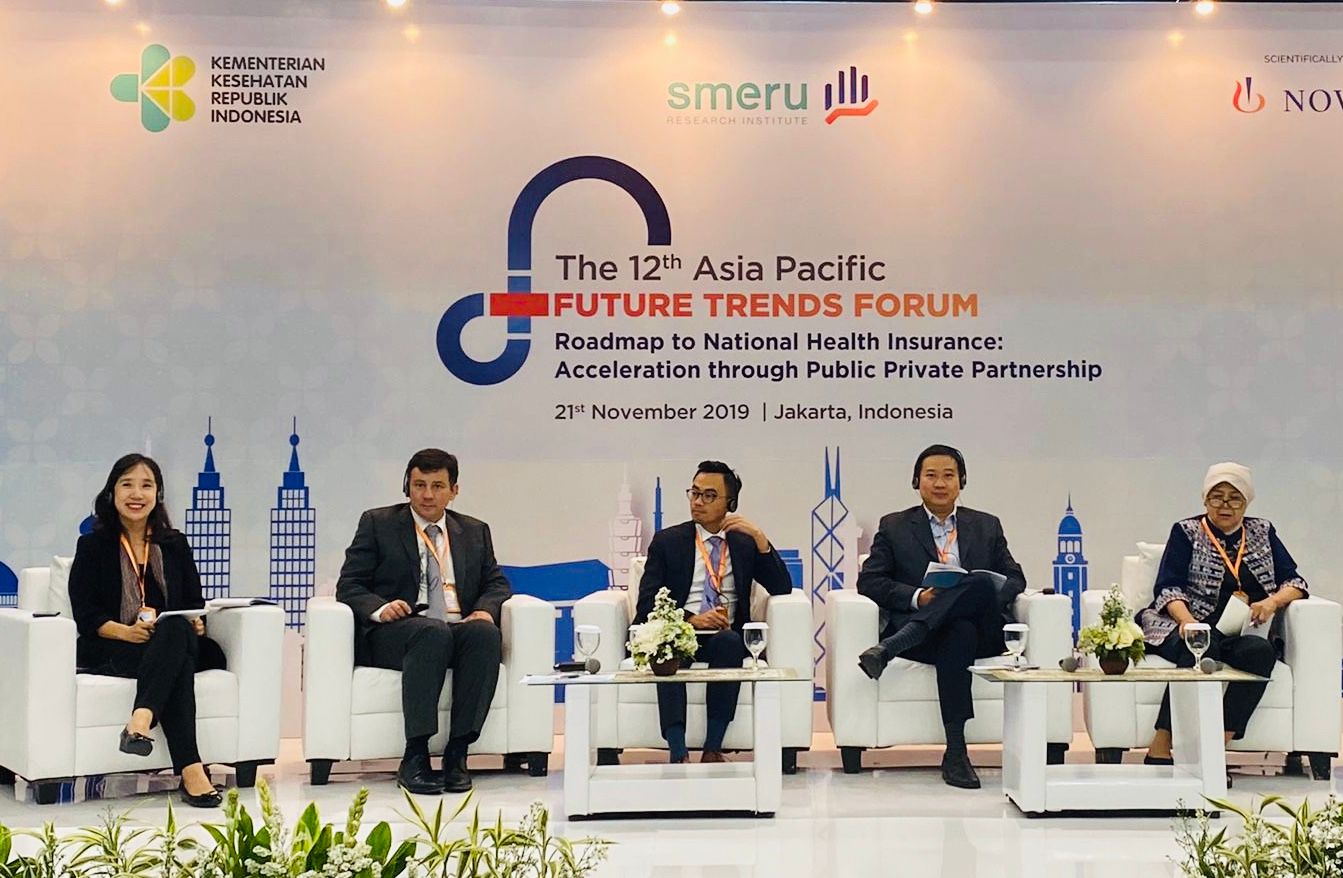
Advocating For Universal Health Coverage
Who would have thought that Singapore's landmark 2011 General Elections would mark another key career transition in Jeremy's portfolio? For years, there have been failed attempts to introduce healthcare policies with a welfare bent in Singapore. Healthcare costs were rising in the last decade and many feared that all it took was severe illness to ravage a family's life savings. Public calls to shift more of the burden of healthcare costs from the individual and the family to the state had been dismissed. The state feared that increased subsidies would encourage moral hazard.
When election season arrived, the opposition had organised themselves around making healthcare more affordable. And when the opposition won 6 out of 87 seats, its best performance since the country's independence in 1965, this 'landslide elections' sparked a newfound optimism and desire for innovation in the nation's healthcare policies.
The people had spoken, and riding this wave of hope was a golden opportunity for Jeremy: he was going to champion for healthcare reform. "I wanted to push for universal health coverage and a national health insurance scheme that would safeguard protection for our older generation."
"The calculus was, how do I be an effective social activist?" Jeremy would quit his then position as CEO of Fortis Colorectal Hospital, Singapore to become a full-time activist. "I became a jobless, penniless social activist with nothing but an internet connection." He quirked a sheepish grin. This noble undertaking would have been impossible without his family's support. "Luckily, my wife is also a doctor and in a stable role. She's very supportive, even though she chides me by saying 'You're always doing this to stress me!' To which I'd reply, 'Thank you very much, dear.'" He chuckles.
And so began his journey into the politics of public health. "I met ministers and politicians from all political parties to advocate for my views and raise awareness on what I thought was wrong with the health system." He was deliberately vocal, churning out article after article. "I just write, write, write!" He would not realise the implications of this foray until much later.
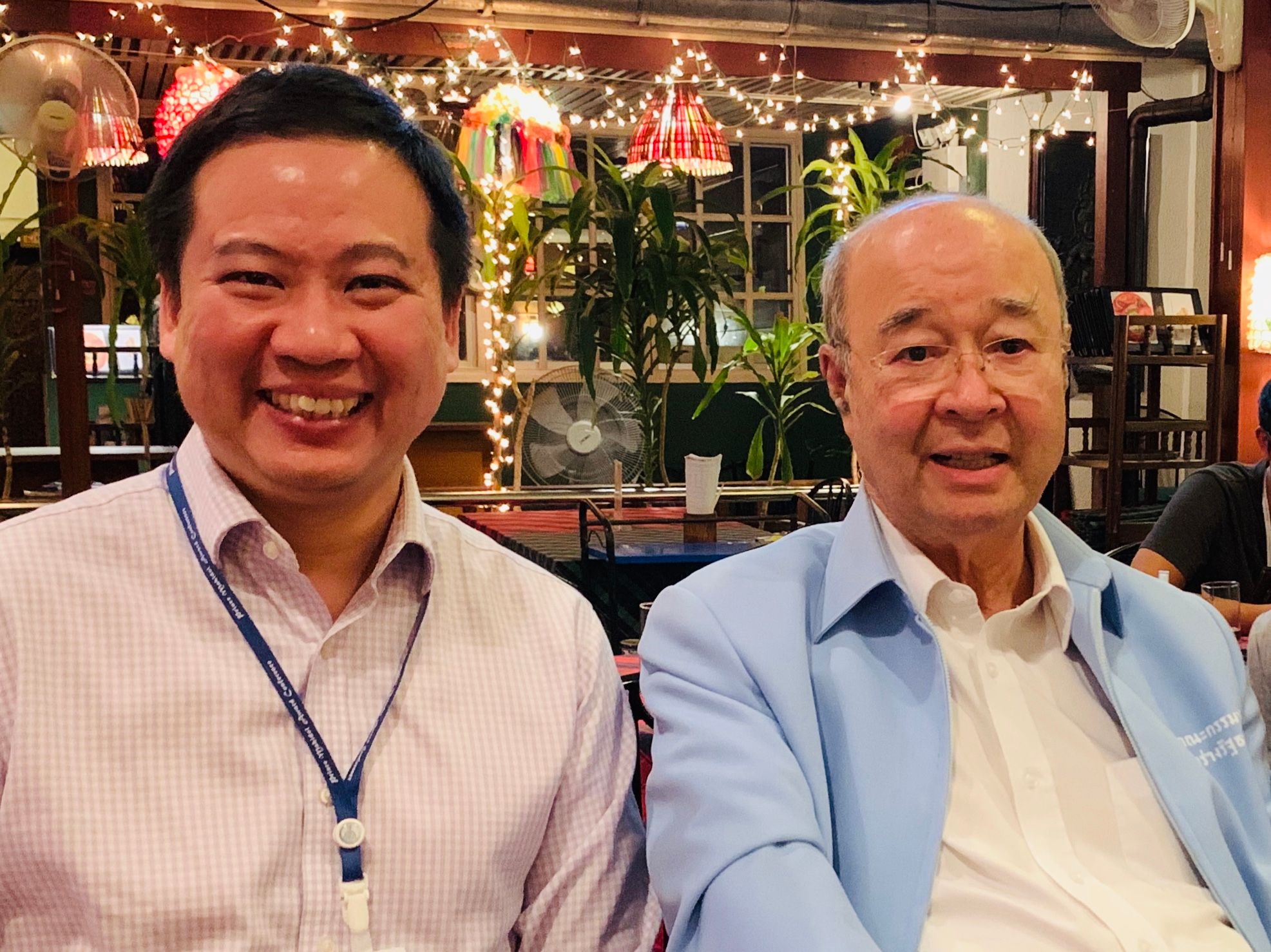
Taking An Ambitious Stab At Writing
In 2013, Jeremy would publish what became a momentous piece of literature in Singapore, and arguably, the world. Backed by a bold and rigorous attempt at explaining the why's and how's of the Singapore healthcare model, Myth or Magic: The Singapore Healthcare System was the culmination of Jeremy's ferocious push for change in Singapore. "Whenever it comes to discussions about healthcare, only the Minister for Health, the doctors and the prime minister will participate in a very vigorous debate. Everyone else will keep their mouth shut," he huffs, exasperated. "This is because healthcare is complex and nobody wants to look stupid." Healthcare policy is ever-evolving, and while selected policies outlined in this book might be dated, the lessons in Singapore's political philosophies are timeless.
In the book, and throughout his public commentary till today, Jeremy is unashamed of reaching for big, bold questions that would make politicians squirm in their seats. "If you don't understand how the health system works,” he says, “then you cannot have a proper debate or a discussion!"
Three years after that fateful general election, In 2014, Singaporean Prime Minister Lee Hsien Loong had announced the introduction of the Pioneer Generation Package for Singapore's Pioneers- those born on or before 31 December 1949. This package had guaranteed additional subsidies and cash transfers for healthcare. Jeremy says, "The government had clearly listened, not to me but to the voice of the people." He was planning to re-enter the workforce, for with the new scheme, he felt that "it's no longer fun to be a 'rebel without a cause."
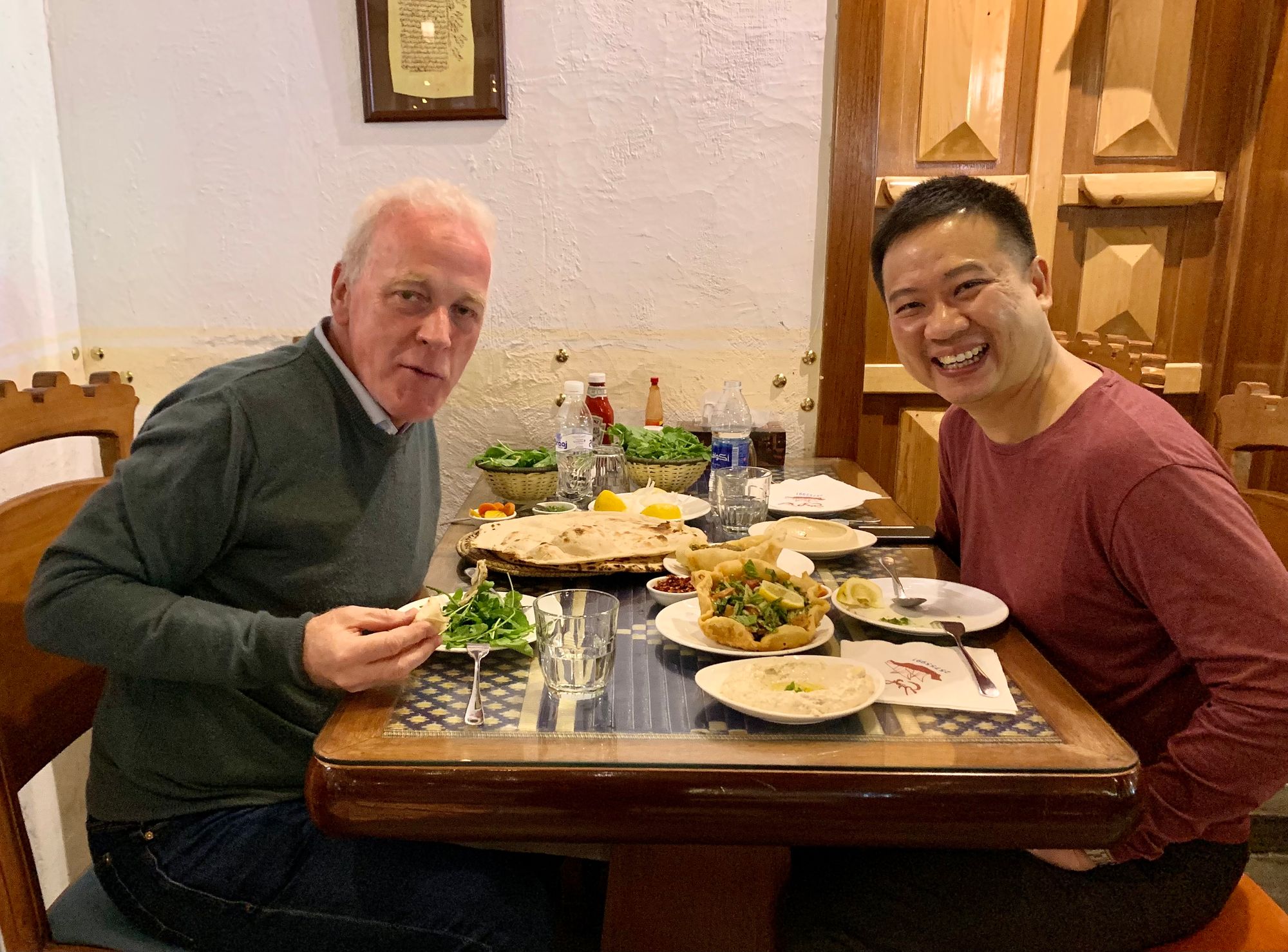
Swivelling Into Consulting And Business
But Jeremy couldn't return to the public sector. "At the time, very candidly, I was unemployable here in Singapore." At my astonished expression, Jeremy felt compelled to school me in a much-needed lesson in the politics of public health. "Of course! My dear," he emphasized, folding his arms and leaning forward across the table, "Would you hire someone if you had the impression that this guy had offended the government?" Shaking his head, he leaned backwards. "Healthcare is a big, tightly regulated space here."
And that marked the beginning of a deeply challenging journey into healthcare’s private sphere. At leading management consulting firm Oliver Wyman, he served as partner and quickly rose to helm the firm's Asia Pacific arm in Health and Life Sciences. "I was very, very fortunate that we caught the wave of healthcare consulting going this way." The firm was one of the early movers into the space. "We rode that wave and built the largest healthcare practice in the region. Now, it's a lot more competitive." Seven years later, Jeremy would attempt to catch and surf what might be the next biggest wave in healthcare.
Venturing Into The Gut Microbiota
Today, Jeremy is the founder and CEO of Asian Microbiome Library (AMiLi), Southeast Asia’s first and only precision gut microbiome firm. Human microbiome research is expected to break revolutionary ground on introducing new therapeutics, diagnostics in treating all forms of infectious diseases and metabolic conditions. Together with his co-founders, "We decided we wanted to start a microbiome startup. Aimed to advance gut microbiome research, AMiLi is set to serve as a hub for gut microbiome innovation and therapy. “We knew that if we weren't going to do it, nobody else would," he says. When asked to describe his role, he chuckles, "My co-founders are the gastroenterologist and clinician-scientists. As for me, I'm the resource mobiliser- the guy who goes around begging for money."

According to some estimates, the human microbiome market is projected to grow from 894 million in 2025 to 1.6 billion in 2028. Jeremy is banking on making the right bet once more. "It's definitely a huge wave- spanning from the commercial, the clinical, the scientific domains- it is really going this way.” Beyond industrial trends, the field has great potential to meet the healthcare needs of millions across Asia. “And because this is the right space to be in, with problems worth solving," he closes in a matter-of-fact manner. “AMiLi's success is a function of how well we execute it."
Embarking On Lifelong Advocacy
Despite his diversity of experiences within and across the field, one belief remains unchanging: that speaking up remains an indispensable driver of change. Close to a decade after his social activist days, Jeremy's voice remains a resounding force for change in both the country and the region's healthcare landscape. Activists are watchdogs- they keep our governmental leaders on their toes. And Jeremy's words demand both transparency from our leaders and increased engagement from our citizens. In a recent piece, Jeremy urgently calls for Singaporeans to join the conversation that will decide how much they will spend on care:
"MediShield Life is a lynchpin of the Singapore healthcare financing system. It’s also inherently political as all of us Singaporeans and Permanent Residents are mandated to enrol and pay premiums. Data and transparency in decision making can strengthen the sense of ownership and support for MediShield Life, and also allow the council and MOH to tap the diverse experiences and expertise of all of us."
Doctor. Writer. Activist. Professor. Businessman.
That is Jeremy Lim, and he is on a mission to cure healthcare’s biggest problems at their roots. How does he take on this daunting endeavour, and how might you do the same? In this next section, we take a peek into Jeremy's mind. Here are eight of Jeremy's biggest takeaways from his years in the field.
If You Don't Ask, You Don't Get.
"If you ask, the worst thing that can happen is people say no. There is no harm- all you need is a thick skin." Although Jeremy was awarded the Fulbright scholarship to pursue his MPH in the US, it wasn't enough. In a bold move, he decided to write to the Shaw Foundation to request for some assistance. In his letter, Jeremy first described his situation, followed by a breakdown of the fees and the estimated sum he needed to fully pay for his studies. "Lo and behold, I received a check for the shortfall in amount- in US dollars!" Jeremy says, his eyes still racing with bewilderment all these years later. "The foundation very kindly decided that it was a deserving case and they will send over some money." The moral of the story? Jeremy laughs, "To find your prince you must kiss a lot of frogs. So, just keep on kissing!"
No Margin, No Mission.
Many who want to do good scorn the idea of profit-making, preferring to focus their efforts on growing the good that they are doing. Jeremy calls this out as simply foolish. But there is nothing quite as taxing as to be constantly strapped for funds. To him, passion alone cannot drive impact, much less any long-term, sustainable difference. Jeremy shared the story of Sister Irene Kraus, the same person who coined the phrase, "'No margin, no mission.' She was a nun who successfully directed six hospitals. She believed charity alone was not enough to sustain a mission and that institutions had to be financially solid." He adds, "You can be as noble as you want to be, but if you have no resources, if your institution or organisation doesn't have a surplus, then nothing will work."
However, Jeremy qualifies that there is a second part of the quote that people do not know about. The second part is, "No mission, no need for margin." To the individuals who are deeply driven by a cause that rings deep in their bones, be heartened to know that purpose remains equally crucial. "If you don't have a noble mission, then you don't deserve to make money," Jeremy finishes. "You need two legs to walk, and they must walk in unison."
Learn How To Manage Money.
When asked to describe his time at Oliver Wyman and AMiLi, Jeremy's jaw sets and his eyes turn determined. "Things were certainly tough, but very good learning," he says. "People never fully understand the pressures of running a business until you are thrust into confronting the profits and losses." So, learn how to manage tight budgets. Learn how to sell and persuade others. These skills, he says, are transferable no matter which sector you enter.
"If the business fails," he pauses, "people lose their jobs." Any entrepreneur or founder takes on great risk and responsibility." The reason why Jeremy holds great admiration for founders? "Running a business is the most masochistic thing you can do to yourself! You are essentially punishing yourself by finding the difficult problems that nobody is solving, and telling everyone, “I will try to solve it." He says with a half-smile on his face. "It's much more comfortable to be a follower."
Don't Be Scared To Try.
Transitioning between major career shifts can be daunting. Jeremy's advice? "Don't be scared to try," he implores. "I say this after having transitioned and reinvented myself a number of times." He offers a personal example. "When I became the Founding Partner & Head of Asia Pacific Region, Health & Life Sciences at Oliver Wyman, I knew nothing about consulting," he says. "But you learn, and you must have the confidence that you are reasonably bright, you're prepared to work hard, and if you're a nice enough guy, people would want to help you." He finished softly, his gaze as-a-matter of fact. "With all that in place, have faith that you will figure out the rest along the way.
Get Comfortable With Systems Thinking.
"I would urge people to understand more systems thinking," Jeremy says. "It is very valuable to look at root causes and the underlying mental models that drive any problem." Healthcare is not just about a patient's visit to the doctor. Managing disease at the biological level is but one dimension. To name a few, healthcare is also about sustainable financing, preventing provider burnout, building a robust pandemic response and more. A whole multitude of factors influences the outcome- making long-term predictions difficult and planning absolutely essential.
Systems thinking is also a superpower to help you solve problems more efficiently. "If you can see the signal out of the noise, or more critically, 'join the dots’, then you can achieve that deeper understanding. This skill, he qualifies, takes years of experience and lots of practice. Once sufficiently skilled, apply systems thinking to any phenomenon and you'd see a pattern emerge, "almost Sherlock Holmes-like."
Ask, "What Is The Problem That We're Trying To Solve?"
A standard consulting question, Jeremy explains, "Oftentimes, people don't know what they're trying to solve. They just know that they're not happy." But ask this question enough times, "You will then understand what is that people really want."
"Don't boil the ocean," is another maxim in the world of consulting. Consultants, he reminds me, are not academics. "Clients pay a lot of money to solve their problems as soon as possible. We simply cannot spend time trying to solve everything," Jeremy says. "We have to be very pragmatic. If one hypothesis does not work, then let's test the next one."
Ask, "How Can I Help You Do Your Job Better?
Jeremy premised this piece of advice with a quote from Peter Drucker: "The purpose of an organization is to enable ordinary human beings to do extraordinary things."
If you are a leader of your team, Jeremy says that it is critical to understand that, "Your job is not to do other people's jobs. Instead, your job is to help people do their jobs better." To Jeremy, most businesses are about the people. "If you can bring out the best in your people, the problems tend to solve themselves." Part of building an organisation that builds extraordinary people is to inculcate psychological safety. "Don't you want to feel supported by your bosses?" He raises his brows. "Everyone wants to have a sense that someone is watching out for you and wanting you to succeed."
Be Fair And Always Strive For A Win-Win.
Life is full of difficult choices. Hire people. Fire people. Steal a deal from someone else. "I tell my team in AMiLi that yardstick is two-pronged," Jeremy says. "We make sure we return a decent profit to our investors while ensuring that we are proud to tell our grandchildren what we did."
Even in the cutthroat corporate world, there is honour amongst thieves. "You can be tough, but you must remain fair," he says. "Maybe I'm a bit biased, but there are so many things broken. To some extent, we can all win because there are many unmet needs.
Conclusion
"Health care is the most difficult, chaotic and complex industry to manage today.” — Peter Drucker in Managing in the Next Society
Rare is the clinician that views healthcare as more than the sum of its parts. Rarer still is one that dedicates his entire career to understanding its complex wiring and intricacies- if only to make a difference. Jeremy has traversed the vast lengths of healthcare. But while his portfolio may impress many, to him his work is far from done. His work will set the groundwork for not just the generations before us, but the generations that come after. His attention to what influences care at every level is what makes his voice so striking.
It has been an honour to be able to share Jeremy’s teachings with the world. I hope you enjoyed this conversation as much as I did.
Book recommendations
Jeremy is an avid reader. Here are just three of his recommended books to get you started.
- How Will You Measure Your Life? by Clayton Christensen, James Allworth, and Karen Dillon. (Jeremy recommends Christensen's books because they are not only relevant and helpful, he is also "such a deep, insightful thinker." Jeremy says, "I do encourage talented young people to read this book for it is a book well worth reading to get your head screwed on right.")
- From Condoms to Cabbages: An Authorized Biography of Mechai Viravaidya by Thomas D'Agnes
- Mountains Beyond Mountains by Tracy Kidder, or anything on Paul Farmer.
Thank you Meeta, Jared, Emmanuel and Jet for reading earlier drafts of this piece!
Stay updated on the best insights from public health professionals.